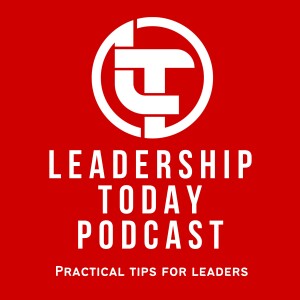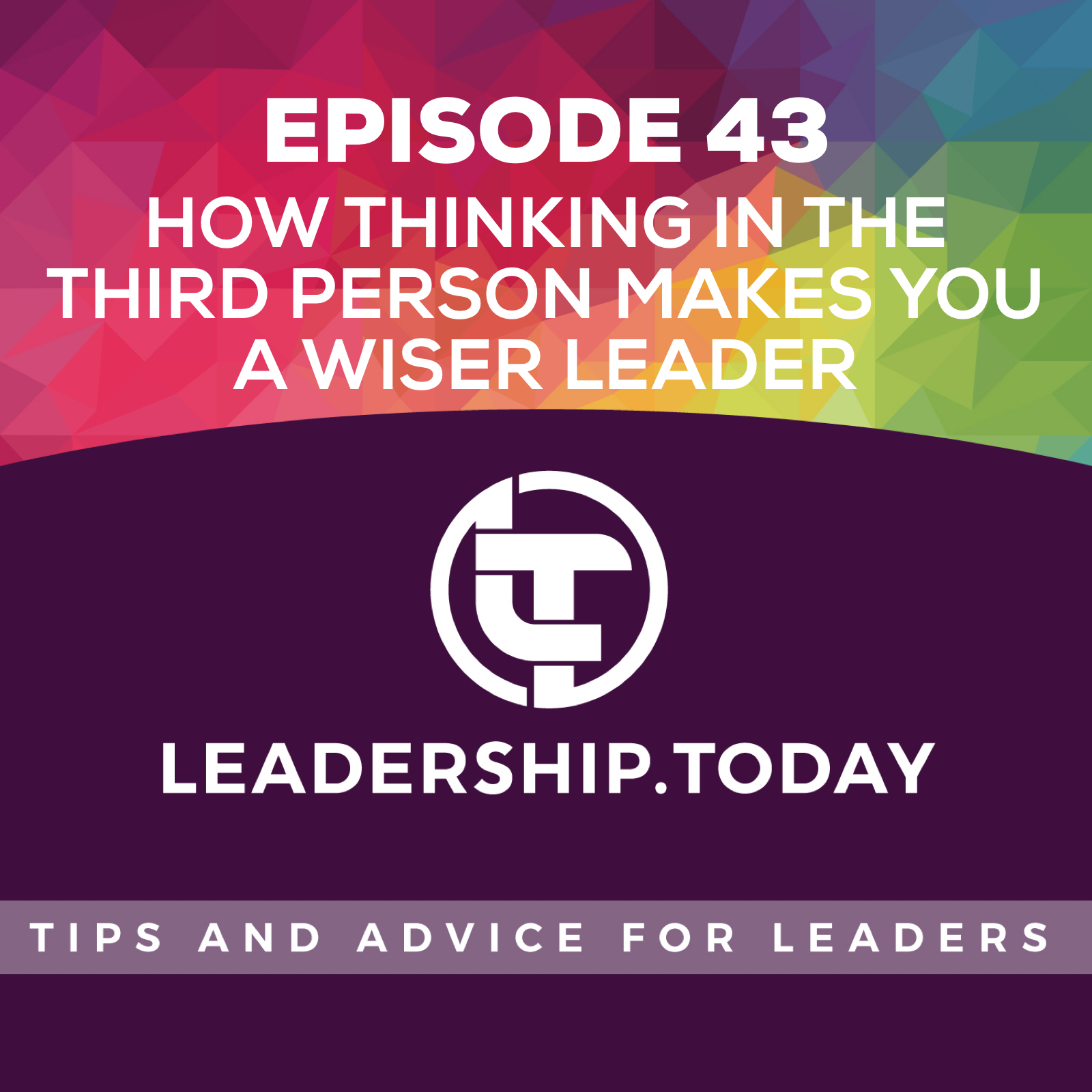
Leadership Today - Practical Tips For Leaders
Business:Management

Episode 43 - How Thinking in the Third Person Makes You a Wiser Leader
 2019-07-05
2019-07-05
As leaders we need to make wise decisions in often complex and emotionally charged situations. This week we look at two techniques for making wiser decisions.
Transcript
Hello and welcome to episode 43 of the Leadership Today Podcast where each week we tackle one of today’s biggest leadership challenges. This week we look at two techniques for making wiser decisions.
As leaders we need to make decisions in often complex and emotionally charged situations.
When it comes to making decisions, we are often encouraged to think of our brain like it’s a computer - that our consciousness is the sum total of electrical impulses rushing around circuits producing a stream of thoughts. However, our brains aren’t just thinking machines - they’re also emotion machines. What the computer analogy overlooks is the electro-chemical nature of the brain - that our thoughts and emotions aren’t just about electrical impulses, but also about the chemicals that interact with and moderate these systems. Our brain constantly influences, and is influenced by, our emotional state.
Our emotional state can help or hinder our decision making. When we’re in a positive emotional state we make better decisions and more readily identify the up side potential of situations. When we’re anxious or stressed we tend to focus on the negatives and become less creative and more risk averse.
To make wiser decisions, it’s helpful to separate out the thoughts and feelings associated with the situation - to recognise the feelings, and act on the facts. One way to do this is to take a third person perspective. Research outlined by David Robson shows that thinking in the third person improves decision making. This approach increases our willingness to consider others’ perspectives, and also allows us to be more open to new ways of thinking about the situation.
Let’s consider an example - that I have a difficult meeting coming up with one of my team members.
Using this approach I switch from saying to myself “I have a challenging conversation coming up with John” to “Andrew has a challenging conversation coming up with John”. I can then work though a series of questions:
How do I feel about the situation? What emotions am I experiencing? Perhaps I’m feeling frustrated with how John has approached an issue and am worried about how he will respond to the feedback I need to give him. Even the process of naming the emotions reduces some of their ‘charge’ and control over our thinking.
What are the facts of the situation? What’s the data that others would also see and agree with? Before I have my meeting with John, it would be helpful to note down the facts as they relate to the conversation we’re about to have.
What advice would I give to a friend in the same situation I’m facing? This helps us to consider the situation at a distance. With John this would allow me to view the situation at arm’s length rather than getting too caught up in the details and history.
One other approach that can help you to act more wisely is to make a decision and then choose to run with it. Once you’ve considered all the factors, commit to your course of action for a set period of time without revisiting it. This approach can help to reduce the rumination and worry that leads us to make poor decisions. For example, research shows that people who check their stock market investments more frequently end up making worse investment decisions and earn lower returns than those who check less frequently. Those who check frequently tend to focus on the negatives and pull out of investments too quickly. It’s similar to people who are always thinking about getting a better job and keep checking for new opportunities - they tend to end up constantly worried and less satisfied with their current job than if they had committed to the job for a period of several months.
This week I encourage you to look for opportunities to apply these two approaches - considering situations in the third person and then sticking to your decisions.
References
https://digest.bps.org.uk/2019/05/24/a-new-trial-of-an-ancient-rhetorical-trick-finds-it-can-make-you-wiser/
https://www.betterment.com/resources/high-frequency-monitoring/
More Episodes
 2020-11-13
2020-11-13
 2020-10-23
2020-10-23
 2020-10-16
2020-10-16
 2020-09-18
2020-09-18
 2020-09-11
2020-09-11
 2020-09-04
2020-09-04
 2020-08-14
2020-08-14
 2020-07-31
2020-07-31
 2020-07-24
2020-07-24
 2020-07-17
2020-07-17
Create your
podcast in
minutes
- Full-featured podcast site
- Unlimited storage and bandwidth
- Comprehensive podcast stats
- Distribute to Apple Podcasts, Spotify, and more
- Make money with your podcast
It is Free
- Privacy Policy
- Cookie Policy
- Terms of Use
- Consent Preferences
- Copyright © 2015-2024 Podbean.com




